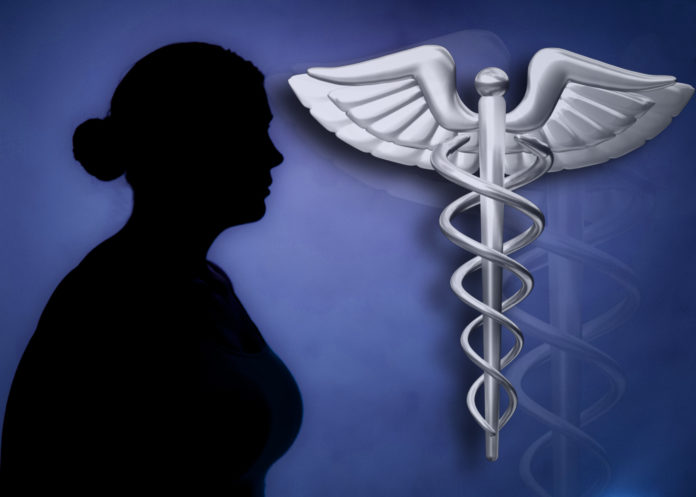Analysis of over 11,000 sample by SRL Diagnostics shows women are more prone to thyroid disorders
It is estimated that about 200 million people suffer from thyroid disorders worldwide. A new report basis a data survey conducted by SRL Diagnostics revealed that women suffer more from thyroid related disorders than men do. The analysis focused on another aspect of thyroid disorders, the autoimmune thyroiditis, wherein one’s own body acts against one’s thyroid.
In the overall population, around 20% women tested positive on thyroid autoantibodies as compared with men, at 15%. The report also highlighted that 11-13% of adults in our country are afflicted by thyroid disorders. However what was interesting that, 19% of the population who were normal on routine thyroid tests (TSH, Free T4) were found to be positive for thyroid autoantibodies. The age group of 31-45 years had the highest proportion of such cases (18%). Zone-wise, people from North India showed to be having the highest percentage of positive thyroid autoantibodies with normal routine thyroid tests.
Around 20% women tested positive on thyroid autoantibodies as compared with men, at 15%. The report also highlighted that 11-13% of adults in our country are afflicted by thyroid disorders
Thyroid disorders affect the thyroid gland, a butterfly-shaped organ in the front of the neck below Adam’s apple. Hormones, which are stored and produced in the thyroid gland, affect the functioning of the various organs in the body. These hormones regulate body’s metabolic rate as well as cardiac and digestive functions, brain development, muscle control, bone maintenance and even one’s mood.
Dr. Avinash Phadke, President Technology & Mentor (Clinical Pathology) SRL Diagnostics said, “Thyroid gland produces two major hormones known as the Thyroxin or T4 (Tetraiodothyronine) and T3 (Triiodothyronine). The pituitary gland in the brain produces a Thyroid Stimulating Hormone (TSH) which controls and monitors the amount of T4 & T3 produced and released by the thyroid gland. A damaged or sluggish thyroid gland causes insufficiency of thyroid hormones and consecutively, thyroid disorders. Sometimes, thyroid gland can become overactive and produce more of T3and T4 than is required by the body. The entire body gets affected when levels of thyroid hormones fluctuate. Thryroid autoantibodies are a culprit in a significant number of such cases. It is important to identify these antibodies and treat the condition accordingly.”
Following are the major thyroid-related disorders which afflict the overall population:
- Hypothyroidism (Underactive Thyroid) – Hypothyroidism is the most common thyroid disorder which affects 1 in 10 adults. SRL report showed that among different disease categories, the highest percentage (26%) of thyroid antibodies was found in hypothyroidism cases. Hypothyroidism occurs due to an underactive thyroid gland, leading to inadequate secretion of thyroid hormone. Common symptoms of hypothyroidism are fatigue, depression, muscle and joint pain, gaining excessive body weight, dry skin, harsh voice and irregular menstrual cycle.
- Hyperthyroidism (Overactive Thyroid) – The prevalence of hyperthyroidism, which occurs due to an overactive thyroid gland leading to excessive hormone production, is relatively less common. Autoantibodies can actually trigger production of unnecessary amount of T3 or T4. Affected people experience excessive sweating, enlarged thyroid gland, rapid heart-rate, puffiness around the eyes, fine hair, and smooth velvety skin.
- Goitre- A condition where there is an enlargement of the thyroid gland. Worldwide more than 90% of cases of goitre occurs due to iodine deficiency or an autoantibody induced state..
In the SRL report, it was seen that 22% of females and 17% of males had tested positive for anti-TPO antibodies – the commonest type of thyroid autoantibody.
On the gender disparity, Dr. Phadke explained, “A woman’s body is more sensitive to hormonal changes and is overall, more reactive to hormonal changes than the male body. Thyroid disorders are more commonly seen in women and are the second most common endocrine disorders during pregnancy after diabetes. All pregnant women should be screened at first antenatal visit by measuring TSH levels, and ideally screening should be carried out during pre-pregnancy evaluation or as soon as pregnancy is confirmed.”
Living with an endocrinological condition may seem difficult as most thyroid problems cannot be cured. However, with early diagnosis it can be completely managed or controlled. Regular screening and monitoring is the key to long-term management. It is recommended by experts to get tested:
- If you are pregnant
- If you have above the age of 60
- If the LDL cholesterol level is not in control despite best efforts and management
- If your weight is increasing unexplainably
- If you have definite symptoms of hypothyroidism
- If your immediate family has medical history of thyroid disorders
- Lastly, women of all ages are more likely than men to have low thyroid hormone levels



[…] Women are more prone to thyroid disorders, says SRL analysis […]
[…] Women are more prone to thyroid disorders, says SRL analysis Medibulletin […]